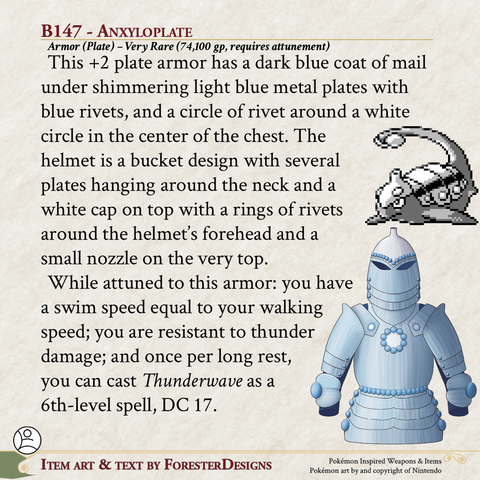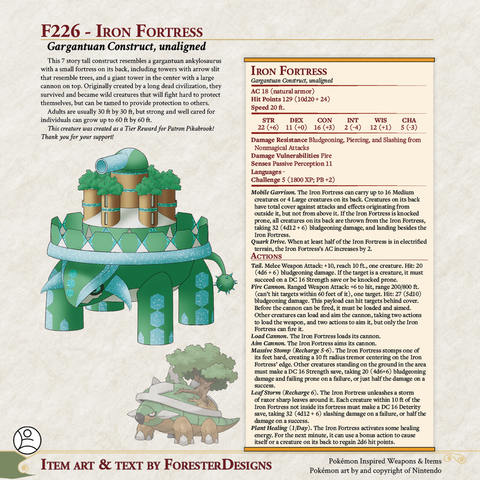A #PF2e conversion of my older #Pokemon #MagicItems, with an #Impidimp #knife to play some pranks!
Come vote for future items on my Patreon
#MagicItem #Pathfinder2e #RPG #RPGArt #PokemonArt #Pathfinder #TTRPG #PathfinderArt #Illustration #FantasyArt #TabletopRPG #PokemonFanArt #FantasyIllustration #Homebrew #TabletopGaming #FantasyGaming #RolePlayingGames #TabletopArt #GameMaster #FantasyWorld #HomebrewContent #GameDesign #MagicItemDesign #PathfinderCommunity #PathfinderHomebrew #HomebrewMagic



















































